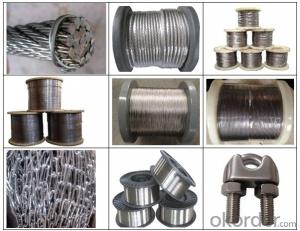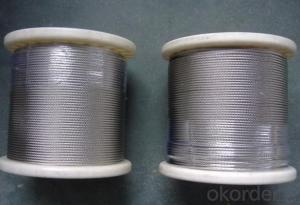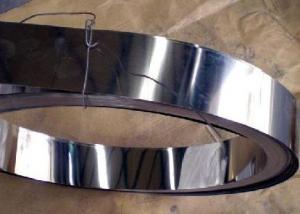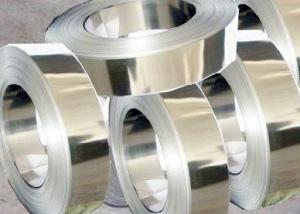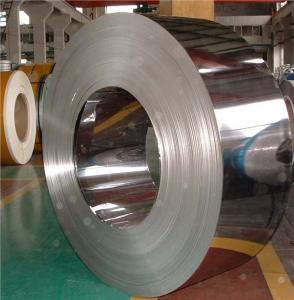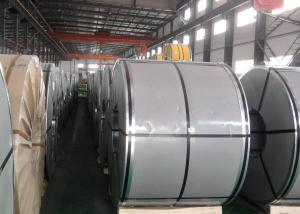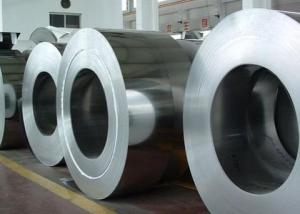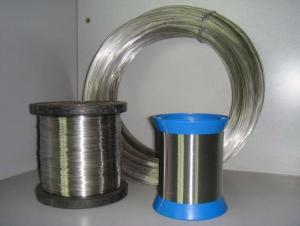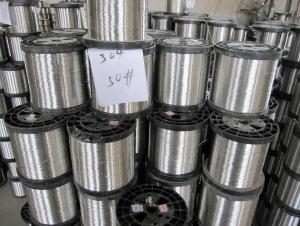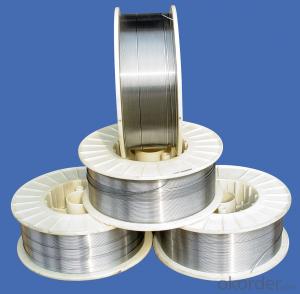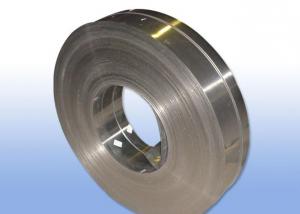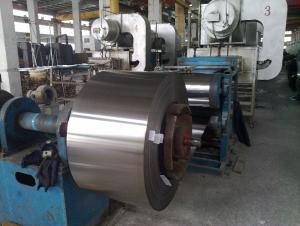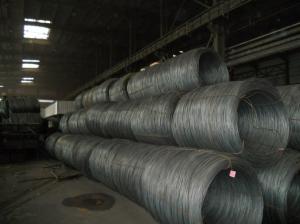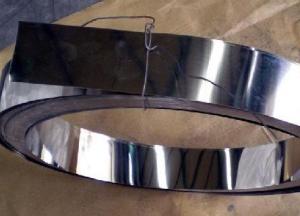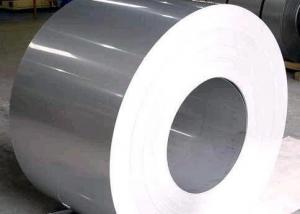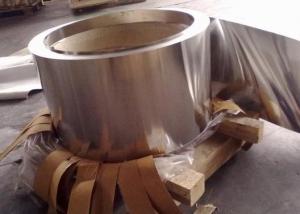Wire Galvanized Carbob Steel Wire for ACSR
- Loading Port:
- Dalian
- Payment Terms:
- TT OR LC
- Min Order Qty:
- 5 m.t.
- Supply Capability:
- 10000 m.t./month
OKorder Service Pledge
OKorder Financial Service
You Might Also Like
Item specifice
Wire Galvanized Carbob Steel Wire for ACSR
Quick Details
Steel Grade: | steel | Standard: | AISI, ASTM, BS, DIN, GB, JIS | Wire Gauge: | 1.24-5.50mm |
Place of Origin: | China (Mainland) | Type: | Galvanized | Application: | Manufacturing |
Alloy Or Not: | Non-alloy | Special Use: | Cold Heading Steel | Model Number: | wire galvanized steel for acsr |
Brand Name: | CNBM | wire galvanized: | wire galvanized steel for acsr |
Packaging & Delivery
Packaging Details: | Coil with plastic outside or according to customer's requirement. |
Delivery Detail: | 20 working days after receiving your order. |
Wire Galvanized Steel for ACSR
1. Material: Q195,Q235,45#,60#,65#,70#,72B,80#,82B,65Mn
2. Surface Coating: Galvanized
3. Characteristic: High tensile strength,small tolerance
Shiny surface, good corrosion prevention
4. Packing type:Spool or Coil
5. Application: Being used for stranded conductors in overhead power circuitry
6. Remarks during use and handling:
a. During transportation, handle softly and carefully, avoid bumping and damaging the steel wires. Moisture and rain prohibited. Steel wires must be stored in dry and well ventilated indoors
b. Pay attention to the direction of steel wires when paying-off. Be sure the spool or coil is rotating freely as to achieve identical tension of all the steel wires
c. In case of batch usage, the remaining should be repacked to avoid oxidizing of the surface
Technical parameters
Wire dia: 1.24-5.5mm; Tensile Strength:1290~1340Mpa
Nominal diameter (mm) | Tensile Strength | Stress at 1% Elongation | Twist | Elongation | Standard |
mm | Mpa | Mpa | Times/360° | Lo=250mm | |
1.24~2.25 | ≥1340 | ≥1170 | ≥18 | ≥3.0% | As per GB,EN,IEC,JIS,ASTM standard, as well as customer's request |
2.25~2.75 | ≥1310 | ≥1140 | ≥16 | ≥3.0% | |
2.75~3.00 | ≥1310 | ≥1140 | ≥16 | ≥3.5% | |
3.00~3.50 | ≥1290 | ≥1100 | ≥14 | ≥3.5% | |
3.50~4.25 | ≥1290 | ≥1100 | ≥12 | ≥4.0% | |
4.25~4.75 | ≥1290 | ≥1100 | ≥12 | ≥4.0% | |
4.75~5.50 | ≥1290 | ≥1100 | ≥12 | ≥4.0% |
NOTE:Providing engineer design as per cstomer's request.
Picture
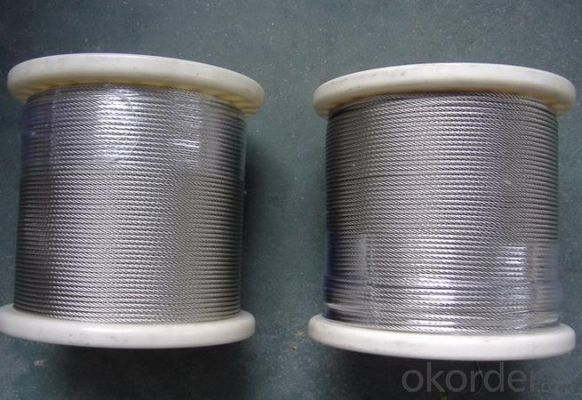
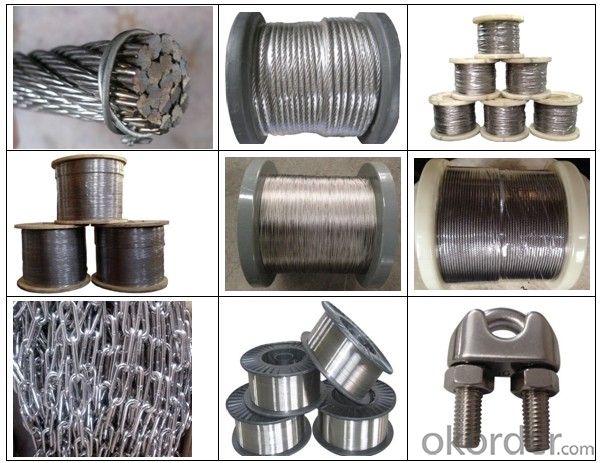
- Q:Can stainless steel wire brushes be used for cleaning bathroom fixtures?
- Yes, stainless steel wire brushes can be used for cleaning bathroom fixtures. Stainless steel wire brushes are durable and have strong bristles that can effectively remove dirt, grime, and mineral deposits from bathroom fixtures such as faucets, showerheads, and drains. However, it is important to use the appropriate size and bristle stiffness for the specific fixture to avoid scratching or damaging the surface. Additionally, it is recommended to test the brush on a small, inconspicuous area before using it extensively to ensure it does not cause any damage.
- Q:What are the different types of stainless steel wire ropes used in oil and gas industries?
- In the oil and gas industries, stainless steel wire ropes play a crucial role due to their exceptional strength, durability, and resistance to corrosion. There are several types of stainless steel wire ropes used in these industries, each with specific characteristics that make them suitable for different applications. 1. 1x19 Construction: This type of stainless steel wire rope consists of 19 strands of wire twisted together, forming a strong and smooth rope. It is commonly used for applications that require high tensile strength and minimal flexibility, such as rigging and offshore mooring. 2. 7x7 Construction: As the name suggests, this stainless steel wire rope is made up of 7 strands, with each strand consisting of 7 wires. It offers good flexibility and moderate strength, making it suitable for applications like control cables, guy wires, and winches. 3. 7x19 Construction: This type of stainless steel wire rope is similar to the 7x7 construction but has 19 wires in each strand. It provides excellent flexibility along with high strength, making it ideal for applications like lift cables, slings, and securing heavy loads. 4. 6x19 Construction: The 6x19 construction consists of 6 strands of wire, with each strand containing 19 wires. It offers a good balance between strength, flexibility, and abrasion resistance. This type of stainless steel wire rope is commonly used in applications like drilling lines, guy wires, and winch lines. 5. 6x36 Construction: This stainless steel wire rope is made up of 6 strands, with each strand containing 36 wires. It offers excellent flexibility, making it suitable for applications that require repeated bending or coiling, such as cranes, hoists, and elevators. 6. 7x37 Construction: With 7 strands and 37 wires per strand, this type of stainless steel wire rope provides high flexibility and exceptional strength. It is commonly used in heavy-duty applications, including offshore drilling, oil rigging, and marine applications. These are just a few examples of the different types of stainless steel wire ropes used in the oil and gas industries. The selection of the appropriate wire rope depends on factors like the specific application, load requirements, environmental conditions, and budget. Consulting with experts in the field can help determine the most suitable stainless steel wire rope for a particular oil and gas industry application.
- Q:Can stainless steel wire be used for electrical purposes?
- Yes, stainless steel wire can be used for electrical purposes. Stainless steel is known for its high electrical conductivity, corrosion resistance, and durability, making it a suitable material for various electrical applications. It is commonly used in electrical wiring, grounding systems, and electrical connectors. Stainless steel wire is also used in the construction of electrical appliances, circuit boards, and electronic devices. Its excellent thermal properties and resistance to extreme temperatures make it a reliable choice for electrical purposes. Additionally, stainless steel wire is non-magnetic, which is advantageous in situations where magnetic interference needs to be minimized. Overall, stainless steel wire is a versatile and reliable option for electrical applications, offering both electrical conductivity and resistance to corrosion.
- Q:Is stainless steel wire suitable for wire knitting?
- Yes, stainless steel wire is suitable for wire knitting. It is durable, flexible, and resistant to rust and corrosion, making it a great choice for knitting intricate designs and creating sturdy and long-lasting wire knitted projects.
- Q:Can stainless steel wire be easily soldered or welded?
- Stainless steel wire can be both soldered and welded, but the ease of doing so may vary depending on the specific type of stainless steel and the skill level of the person performing the soldering or welding. Soldering stainless steel wire can be challenging because it has a high melting point and is resistant to corrosion. However, with the right tools and techniques, it is possible to solder stainless steel wire. It is important to use a soldering iron with enough power to heat the stainless steel wire properly and to choose a soldering flux specifically designed for stainless steel. Additionally, the wire should be thoroughly cleaned and properly prepared before attempting to solder it. Welding stainless steel wire, on the other hand, is generally easier than soldering. Stainless steel wire is commonly welded using either TIG (Tungsten Inert Gas) welding or MIG (Metal Inert Gas) welding techniques. TIG welding is particularly suitable for thin wires and precise welds, while MIG welding is more commonly used for thicker wires and larger-scale projects. In summary, while soldering stainless steel wire can be more challenging due to its high melting point and corrosion resistance, it is still possible with the right tools and techniques. On the other hand, welding stainless steel wire is generally easier and can be accomplished using TIG or MIG welding techniques.
- Q:Can stainless steel wire be used for springs in the food industry?
- Indeed, stainless steel wire is a viable option for utilizing springs within the food industry. The food industry has a strong preference for stainless steel as it possesses exceptional qualities including remarkable resistance to corrosion, hygienic attributes, and the ability to endure high temperatures and harsh cleansing agents. Stainless steel springs find application in a variety of areas such as food processing machinery, packaging equipment, conveyor systems, and industrial cooking apparatus. The utilization of stainless steel guarantees that the springs remain impervious to rust and contamination, thus ensuring their suitability for employment in food processing and handling. Additionally, stainless steel is effortless to clean and maintain, thereby upholding the integrity and safety of food products.
- Q:What material of stainless steel screws is not easy to strip?
- Aiming at this problem to strip stainless steel screw screw. Not just as simple as the customer thinks, producing screws by changing the screws and wires of the material. Although this is a better solution. But we still have to analyze and analyze. To find out the reason for the screw tooth, then an antidote against the disease.
- Q:What are the different types of stainless steel wire for different levels of conductivity?
- There are several different types of stainless steel wire available, each with varying levels of conductivity. 1. Austenitic Stainless Steel Wire: This type of stainless steel wire is commonly used in applications that require a high level of corrosion resistance. While it offers good mechanical properties, it has a relatively low electrical conductivity compared to other types of stainless steel wire. 2. Ferritic Stainless Steel Wire: Ferritic stainless steel wire is known for its magnetic properties and offers good resistance to corrosion. However, it has a lower electrical conductivity compared to austenitic stainless steel wire. 3. Martensitic Stainless Steel Wire: Martensitic stainless steel wire is characterized by its high strength and hardness. It has moderate corrosion resistance and relatively low electrical conductivity. 4. Duplex Stainless Steel Wire: Duplex stainless steel wire combines the properties of both austenitic and ferritic stainless steels. It offers good corrosion resistance and moderate electrical conductivity. In general, if high electrical conductivity is a requirement, other materials like copper or aluminum wires may be more suitable. However, stainless steel wires can still be used in certain applications where corrosion resistance and durability are more important factors.
- Q:Is stainless steel wire resistant to pitting?
- Stainless steel wire possesses resistance to pitting corrosion. Pitting corrosion, a localized form of corrosion that can arise in metals, is effectively countered by stainless steel. The composition of stainless steel includes a significant amount of chromium, which generates a protective oxide layer on the metal's surface. This oxide layer serves as a barrier, inhibiting the infiltration of corrosive substances and thwarting pitting corrosion. Moreover, the resistance to pitting of stainless steel wire can be further enhanced by incorporating other alloying elements like molybdenum or nickel. Consequently, stainless steel wire is renowned for its exceptional ability to resist pitting corrosion, rendering it suitable for a wide array of applications in diverse industries.
- Q:What are the different types of stainless steel wire for different levels of malleability?
- There are several types of stainless steel wire available, each with varying levels of malleability. Some common types include austenitic stainless steel wire, which is highly malleable and has excellent corrosion resistance; ferritic stainless steel wire, which is less malleable but still offers good corrosion resistance; and martensitic stainless steel wire, which is the least malleable but provides high strength and hardness.
1. Manufacturer Overview |
|
|---|---|
| Location | |
| Year Established | |
| Annual Output Value | |
| Main Markets | |
| Company Certifications | |
2. Manufacturer Certificates |
|
|---|---|
| a) Certification Name | |
| Range | |
| Reference | |
| Validity Period | |
3. Manufacturer Capability |
|
|---|---|
| a)Trade Capacity | |
| Nearest Port | |
| Export Percentage | |
| No.of Employees in Trade Department | |
| Language Spoken: | |
| b)Factory Information | |
| Factory Size: | |
| No. of Production Lines | |
| Contract Manufacturing | |
| Product Price Range | |
Send your message to us
Wire Galvanized Carbob Steel Wire for ACSR
- Loading Port:
- Dalian
- Payment Terms:
- TT OR LC
- Min Order Qty:
- 5 m.t.
- Supply Capability:
- 10000 m.t./month
OKorder Service Pledge
OKorder Financial Service
Similar products
New products
Hot products
Related keywords
